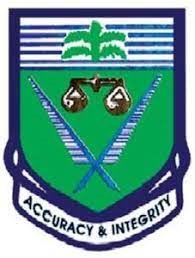The Institute of Chartered Accountants of Nigeria (ICAN) has accredited the accounting programmes of 14 universities, three polytechnics and eight tuition training centres, which would exempt their graduates from participating in foundational courses of the ICAN.
The President of ICAN, Dr. Innocent Iweka Okwuosa, explained that the essence of the accreditation was to assure the institute that the curriculum of the universities and polytechnics met its requirements to warrant such exemptions.
Okwuosa, gave the explanation during the “Award of Accreditation/Recognition Certificates of Tertiary Institutions and Training Centres Ceremony,” which took place yesterday in Lagos.
Among the tertiary institutions that were accredited are University of Lagos, Trinity University Lagos, Abia State University, Akwa Ibom State University, Nasarawa State University, Veritas University Abuja, Institute of Management and Technology, Enugu and Nigerian Army School of Finance, Apapa, Lagos State, etc.
He said; “If your university or polytechnic is accredited you will start ICAN’s programme at the skills level. It means that all the subjects at the foundation level will be waved for you.
“But we have to be sure that you have passed through the same level of proficiency that would merit your exemption from all the subjects at our foundation level.”
Okwuosa added: “Accreditation enables us to give exemptions to degree holders on some of the subjects ordinarily we would have expected them to write in our initial professional development (IPD) before they become our members and we want to make sure that standard is upheld by the universities, polytechnics and training centres.
“As we are aware different universities and institutions have different challenges and we do not equate all of them to be the same. Therefore, we have to ensure that they meet ICAN’s standard through accreditations that we confer.”
He also differentiated the ICAN’s accreditation from those granted by the National University Commission (NUC) and the National Board for Technical Education (NBTE) by emphasising that ICAN’s accreditation is solely focused on accounting syllabus of these educational institutions.
He added that the institute has also introduced another level of accreditation for tertiary institutions under the Mutual Recognition Agreement (MRA), which would enable graduates of these institutions to “proceed to the final level and write only five subjects under the present arrangement.
“What we trying to achieve is to ensure that we address developments in the labour market in Nigeria. Everybody is complaining that graduates no longer fit the necessary skills that are required in the labour market.
“So, the MRA is a tripartite arrangement involving the university and polytechnics, the ICAN and employers.
“We ensure that the curriculum for the degrees will mirror ICAN’s syllabus. And there will be employers that will provide internship for these graduates and later employ them.
“That is how it is done in England and Wales and that is what we want to introduce,” Okwuosa said.
He thanked the universities, polytechnics and training centres for the partnership because “the task of training accountants cannot be handled by the ICAN alone.
“We need that collaboration with tuition houses, universities and polytechnics because they produce the raw materials that we feed into the professional qualification process.”
Responding on behalf of the representatives of the recipient institutions, the Vice Chancellor of Trinity University, Lagos, Prof. Clement O. Kolawole, said that they are particularly delighted to be recognised by the ICAN.
Kolawole said: “We are also delighted to be working in partnership with ICAN in the production of highly competent and skilled accountants.
“We appreciate this cooperation that has enabled us as institutions to have recognition that we so desire that qualified us to produce the necessary manpower in that field.
“It is an understatement to say that we do not value what ICAN does. If we produce the academic graduates in accountancy and they are not certified by ICAN, I am not sure how far they can go in their careers.
“When a body like ICAN stands behind us and supports what we are doing in our institutions and training centres, we are sure that we are producing people that we can vouch for; peoples that can represent the ideals of ICAN in totality.
“We look forward to working with you now and in future because of the mutual benefit that our working with you will bring to both the institutions and ICAN.”
Speaking in the same vein, the Chairman of BRATIM, Mr. Seyi Katola, said: “We thank the ICAN that considered us worthy of this accreditation and award. We want to assure that we will continue to uphold the ideals and standards set by the ICAN.”























